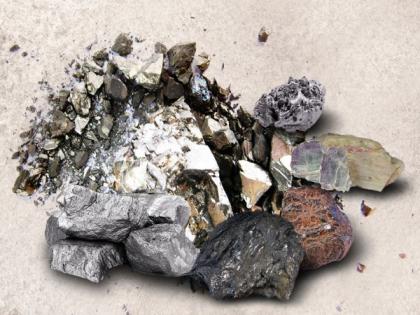Five-pillar plan to make India self-reliant in rare earth magnet production: Report
By ANI | Updated: August 13, 2025 16:14 IST2025-08-13T16:09:36+5:302025-08-13T16:14:56+5:30
New Delhi [India], August 13 : A report by advisory firm Primus Partners has outlined a comprehensive five-pillar blueprint ...

Five-pillar plan to make India self-reliant in rare earth magnet production: Report
New Delhi [India], August 13 : A report by advisory firm Primus Partners has outlined a comprehensive five-pillar blueprint to localise the production of rare earth magnets in India, aiming to secure the country's electric vehicle (EV) future and reduce its near-total dependence on Chinese imports.
Titled "From Extraction to Innovation: A Blueprint for Enhancing Rare Earth Magnet Ecosystem in India's EV Roadmap", the report proposes a strategy spanning from upstream mineral extraction to downstream magnet manufacturing, critical for EVs, wind turbines, and defence technologies.
The five pillars of the proposed strategy are market assurance. It suggested government-backed price guarantees and long-term offtake agreements with sectors like auto, defence, and renewables to de-risk investments and counter global neodymium price volatility.
It suggested establishing integrated pilot-scale clusters in mineral-rich states such as Odisha, Andhra Pradesh, and Tamil Nadu, and identifying three industrial champions to drive rapid scale-up in magnet production.
It called for launching a National Rare Earth Innovation Hub to boost R&D in recycling, magnet efficiency, and process technology. Recycling could supply up to 40 kt of rare earth magnets' global demand by 2030.
Further, it asked for the formation of a Magnet Ecosystem Coordination Cell to align ministries, fast-track clearances, and track progress within a 3-5 year strategic window.
Over 90 per cent of India's magnet imports come from China, which controls 92 per cent of global magnet manufacturing. Recent export restrictions and customs delays in China disrupted supply chains for Indian companies, including leading auto component makers.
Davinder Sandhu, Co-Founder and Chairperson of Primus Partners, stated, "India has both the reserves and the demand. Yet despite holding the 5th largest rare earth reserves, we account for less than 1 per cent of global magnet production. The INR 34,300 crore outlay under the Critical Minerals Mission is a strong start, but we can't afford to remain resource-rich and capacity-poor."
"China spent decades building its dominance; India doesn't have that luxury. We must compress that journey through bold investments in technology, fast-tracked clearances, and strong industry-research partnerships to scale extraction, processing, and recycling."
According to Nikhil Dhaka, Vice President, "As the sustainable mobility sector accelerates, we need a national effort to de-risk EV manufacturing at its core. Without urgent localisation, technology innovation, faster approvals, and strong private-sector partnerships, every vehicle we build will carry the same import dependence we face today."
China's overwhelming control of global rare earth processing - commanding over 90 per cent of the world's magnet production capacity - has created significant vulnerabilities for industries worldwide. These materials are critical across multiple sectors, including automobiles, home appliances, and clean energy systems. Beyond China, there are only a few alternative suppliers of critical minerals.
The central government, on its part, has earmarked Rs 1,345 crore to incentivise rare earth magnets production in India.
Disclaimer: This post has been auto-published from an agency feed without any modifications to the text and has not been reviewed by an editor
Open in app